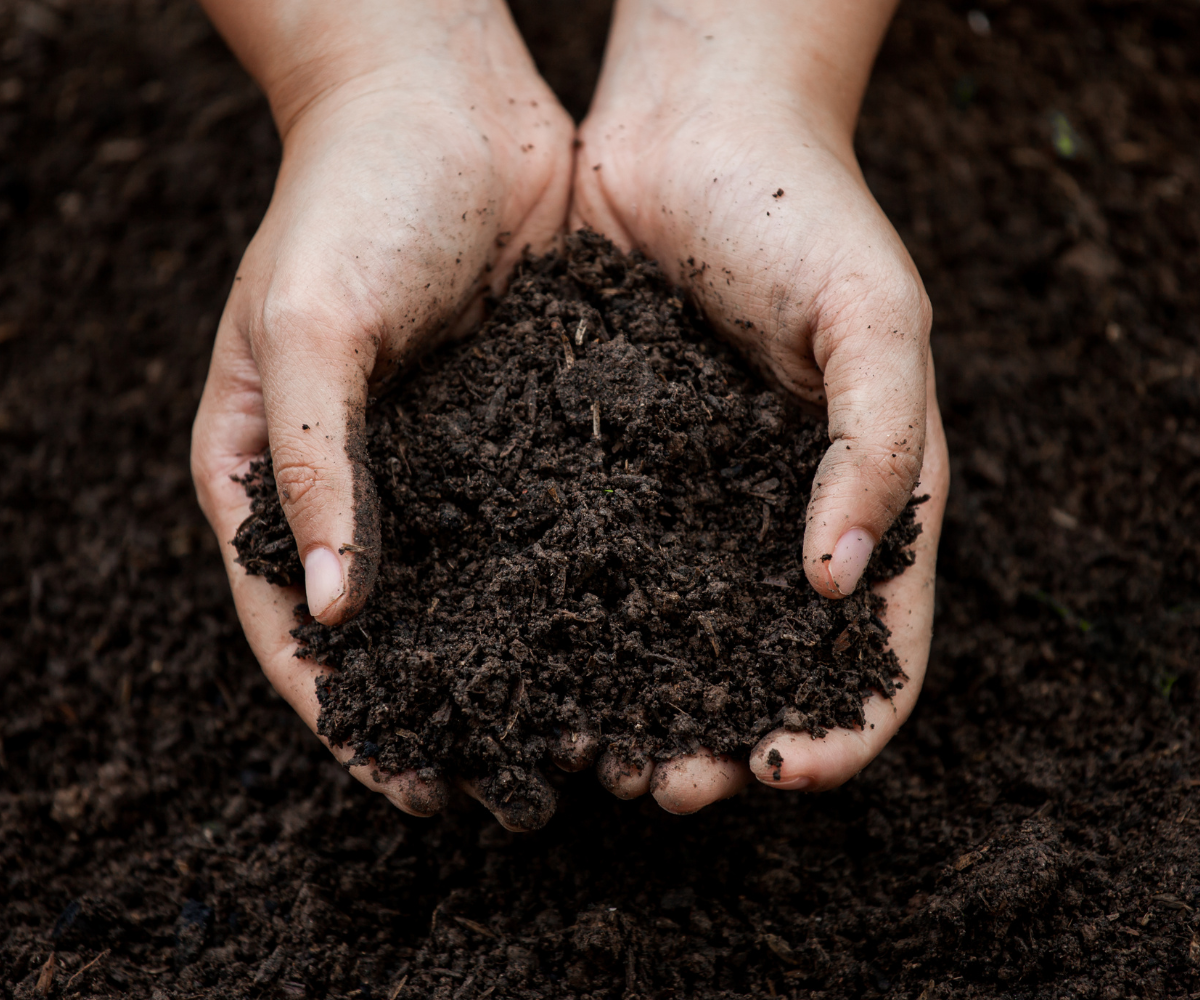
While all microorganisms are essential to the breakdown and enrichment of soil, the most important microorganisms in soil are bacteria, fungi and nematodes.
These microorganisms break down a variety of organic materials in soil, and in turn, produce the building blocks that eventually become humus. This process is vital to the makeup of soil and soil microbial communities.
According to Sustainable Agriculture Research and Education (SARE), "Soil organic matter consists of three distinctly different parts—living organisms, fresh residues, and well-decomposed residues. These three parts of soil organic matter have been described as the living, the dead and the very dead."
Let's dig into the living part that includes bacteria, fungi and nematodes!
Bacteria
There are four main types of bacteria found in the soil biome: nitrogen-fixing bacteria, nitrifying bacteria, denitrifying bacteria and actinomycetes. Each type is essential to the soil nitrogen cycle.
Nitrogen-Fixing Bacteria
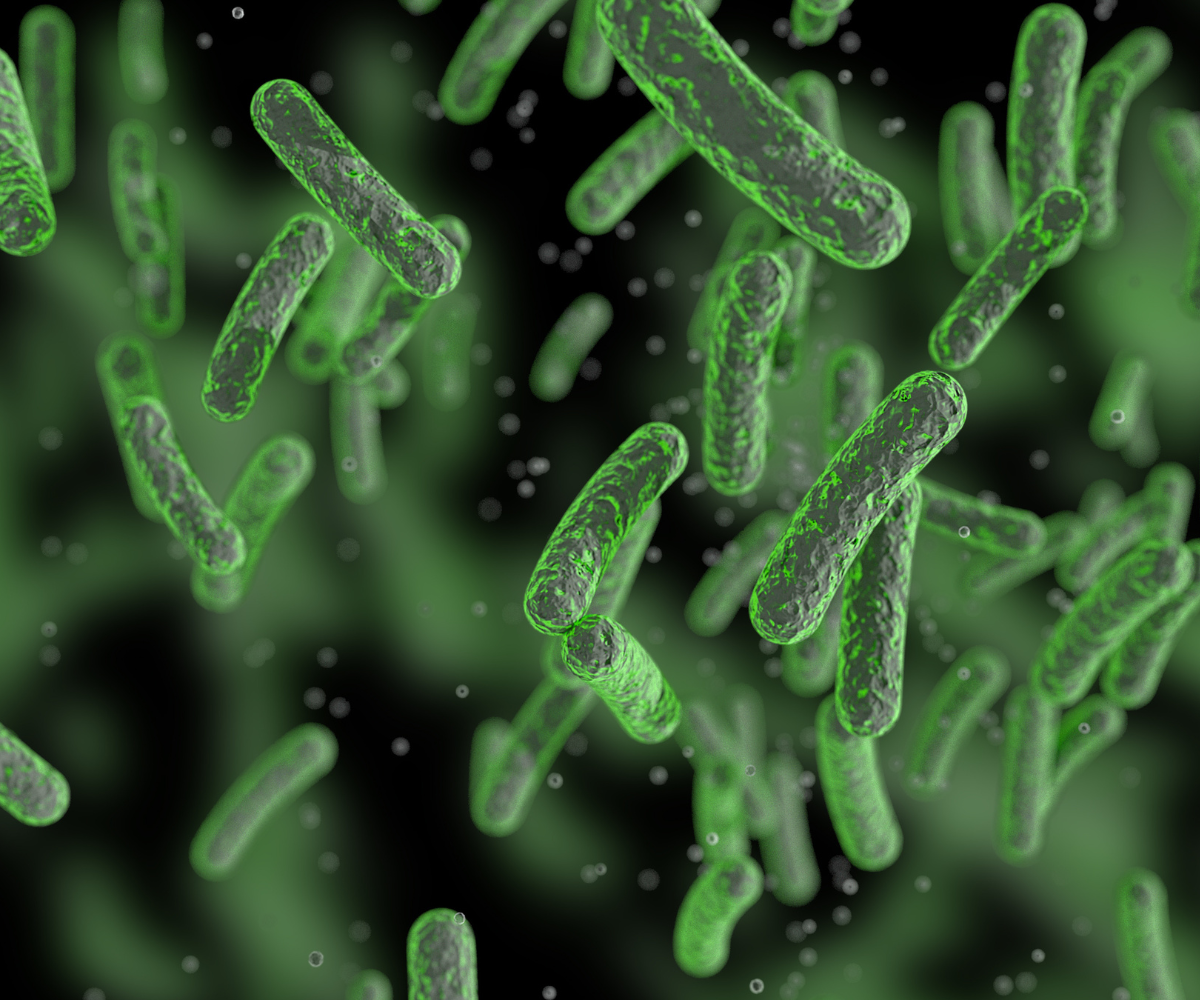
Nitrogen-fixing bacteria take available atmospheric nitrogen (N2) from the atmosphere and convert it to a plant-ready form.
Nitrifying Bacteria
Nitrifying bacteria convert ammonium (NH4+) to nitrite and then to nitrate. Nitrate is a form of nitrogen ready for uptake by plants.
Denitrifying Bacteria
Denitrifying bacteria take nitrate and convert it back into nitrogen gas, which can then be released into the atmosphere.
Actinomycetes
Actinomycetes are like fungi in their orientation and aid in the decomposition of organic material. According to the American Society for Microbiology, actinomycetes "are known for decomposing more resistant organic materials such as chitin, a complex sugar found in the outer skeleton of insects and elsewhere."
Fungi
When it comes to the decomposition of organic matter, not everything can be broken down by bacteria alone. In soil microbiology, fungi act as decomposers and as an additional way for nutrients to be solubilized and carbon to be exchanged from the plant. They excel at breaking down long chains or hard-to-break-down organic matter.
Fungi are small, microscopic cells that usually appear as long threads called hyphae. These threads slowly push their way between soil particles, roots and rocks. Hyphae can be as small as a few cells or as long as a few yards, and they are extremely small in diameter.
Fungi also have the ability to group into masses, which are called mycelium and look like roots. By physically binding soil particles together, these fungi perform important tasks that are related to water dynamics. This creates stable soil aggregates that help increase water infiltration and the capacity of the soil to hold water.
Fungi also perform tasks that are essential to nutrient cycling and disease suppression in the soil. They are important to the decomposition cycle of the soil food web because they convert hard-to-digest organic material into forms that other organisms can use.
Fungi can be placed into three general groups based on how they get their energy: decomposers, mutualists and pathogens.
Decomposers
Saprophytic fungi convert dead organic materials into fungal biomass, carbon dioxide and small molecules. Fungi are important for immobilizing nutrients in the soil.
Many of the secondary metabolites of fungi are organic acids, so they help increase the accumulation of humic acid in organic rich matter that is unwilling to decompose and may stay in the soil for hundreds of years.
Mutualists
Mycorrhizal fungi colonize plant roots, and in exchange for carbon from the plant, the fungi help solubilize phosphorus and bring nutrients to the soil.
Pathogens or Parasites
Pathogens or parasites are a group of fungi that cause reduced production or death when they colonize the roots and other organisms of plants. These fungi can cause major economic loss to farmers each year.
Though these fungi can be negative, many can help control diseases. They also feed on insects that may be useful as bio-control agents. Fungi are essential to many plants because they help the plant extract nutrients from the soil.
Nematodes
Some people may hear the word “nematode” and naturally have a sense of fear. But when it comes to the soil microbiome, nematodes are beneficial to the soil food web.
Nematodes are often categorized into four main groups: bacterial-feeders, fungal-feeders, predatory nematodes and omnivores.
Bacterial-Feeders
A lot of times, bacteria are good, but too much of a good thing can be harmful. This type of nematode keeps bacteria at an ideal level.
Fungal-Feeders
Like bacteria, too many fungi soil organisms can lead to overgrowth and covering of important plant material. Having this type of nematode in place to consume fungi overgrowth is crucial.
Predatory Nematodes
Predatory nematodes consume protozoa (plant pathogens) and other soil nematodes.
Omnivores
Omnivores feed on various organisms based on availability in the soil environment.
Benefits of Soil Microorganisms
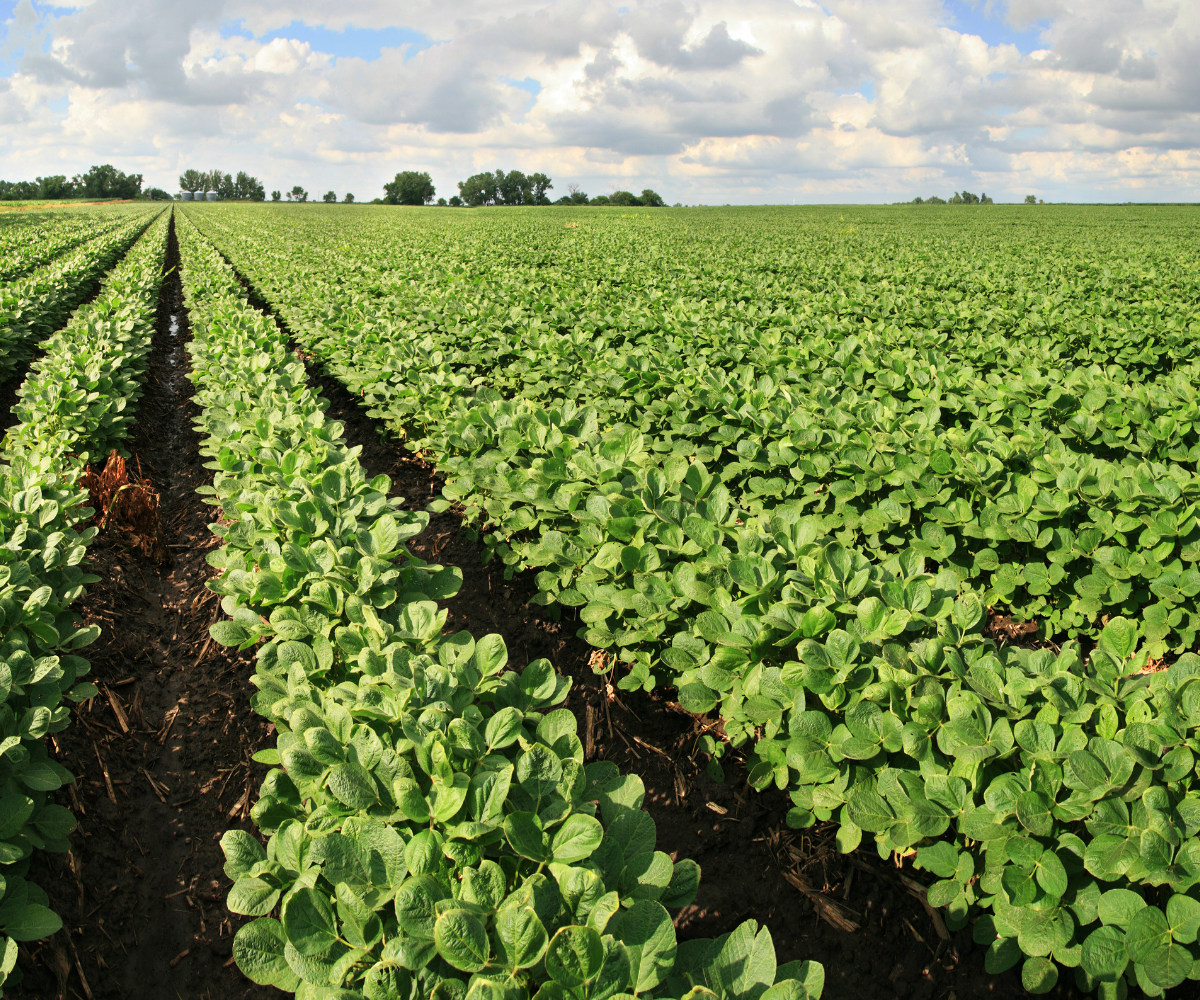
A healthy soil microbiome has a plethora of benefits, and they all contribute to plant efficiency.
Whether you have a golf course with over 1,000,000 square feet of turf grass, a small-scale farm with about 20 acres of row crops or a small garden in your backyard, plant efficiency is key to your success.
Plant efficiency results in larger root mass. For turf grass, this means healthier grass that requires less maintenance. For crops, this means increased yields. Less maintenance and increased yields result in money going back into your pocket.
How Our Products Interact with the Soil Biome
Our products excel at bringing a healthy biome back to the soil by feeding them the nutrients and biology they need: beneficial microbes, organic acids and carbon.
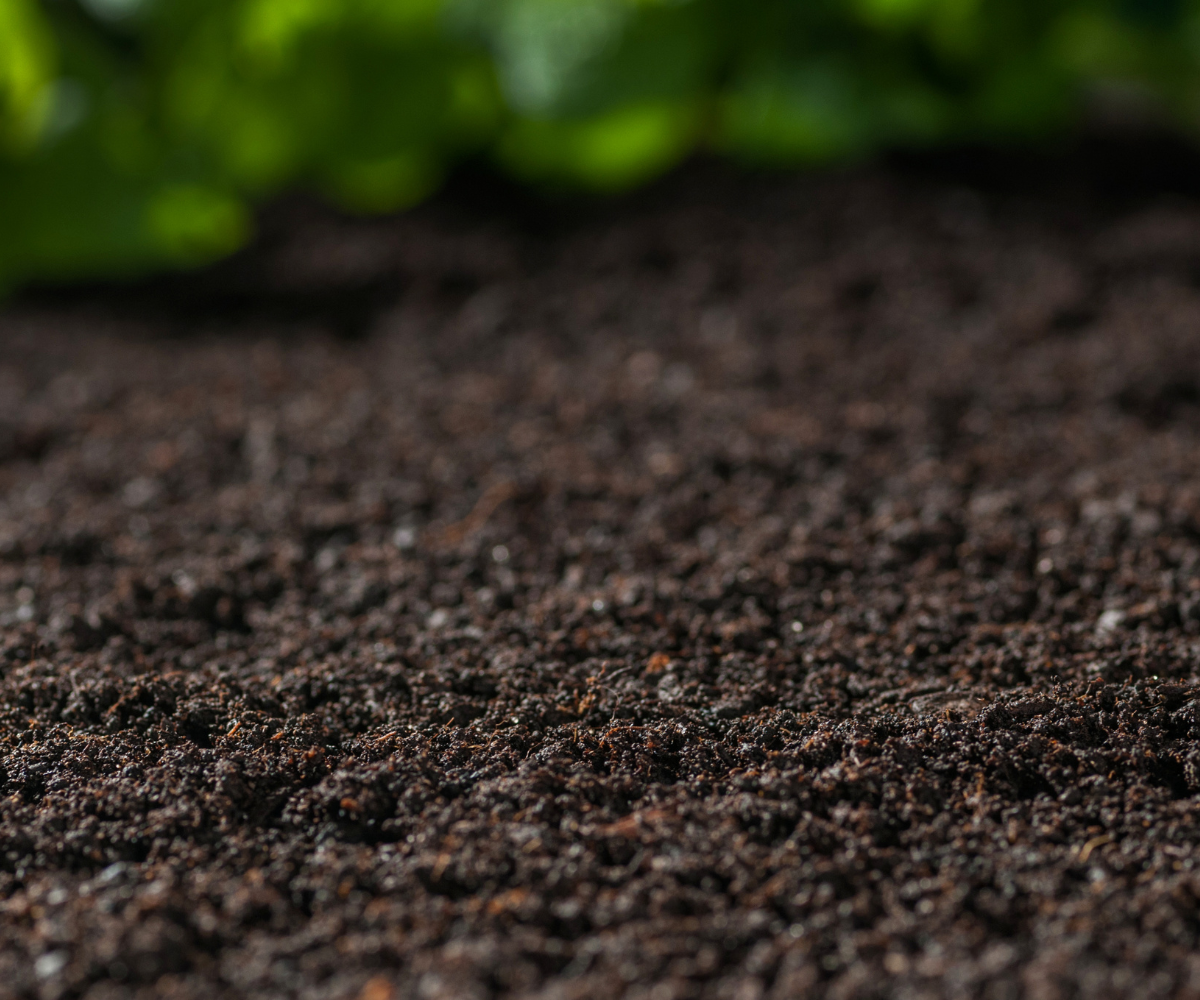
While soil with bacteria, nematodes, fungi and protozoa can function and excel on their own as a growing medium, most soil found today is not in the proper balance and lacks many of these key components. That is where our carbon-rich products loaded with beneficial bacteria, active carbon and organic acids come into play to help maintain soil health.
Here at Southland Organics, we believe turf and crop success is rooted in the soil. A healthy soil with a diverse microbiome gives you a greater chance for success than a soil that is fighting just to maintain itself.
Increase Soil Health and Plant Growth
Our products can be seen as a multivitamin for the soil, bringing all the nutrients a healthy soil requires into one easy-to-digest form. Our products differ from many fertilizers, as we focus mainly on the soil and do not rely on NPK values to generate results.
We feed the soil, providing a natural solution to a natural problem.
Our Lawn and Turf Products
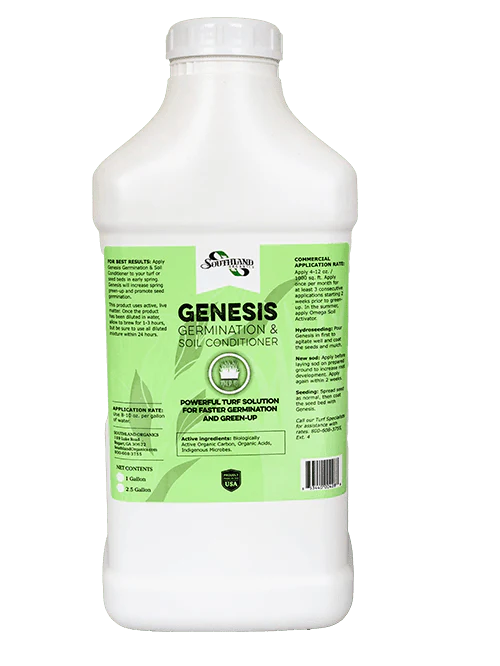
-
Genesis accelerates green-up and is scientifically proven to increase germination rate, soil quality, plant height and mass area.
-
Omega promotes nutrient uptake and builds grass that is resilient to disease and environmental stress.
-
Revival revives turf to healthy and lush conditions, helps break down grass clippings from mower blades and improves compacted soil.
-
FertALive provides a reliable source of nutrients, enhances conventional fertility programs and helps lawns meet their full potential.
Our Garden and Crop Products
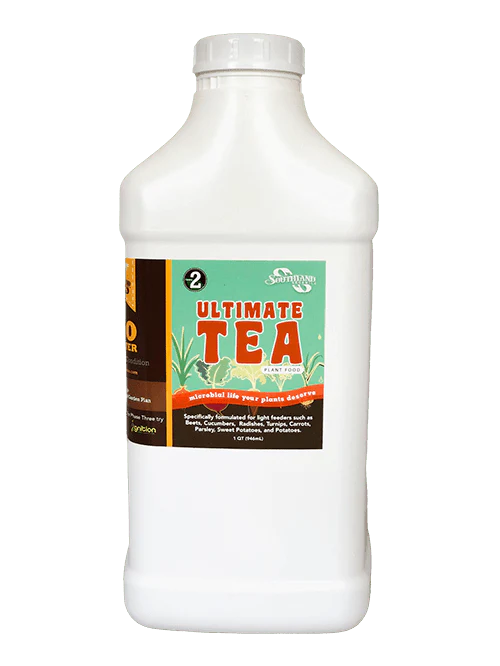
-
Jump Start restores dead soil to healthy, fertile conditions for higher crop yield.
-
Ignition accelerates the decomposition process, turning dead matter into life-giving fuel.
-
Ultimate Tea improves soil structure and adds nutrients, making plants healthier, stronger and more robust.
Contact Us
If you have any questions about our products and how they interact with soil biology, contact us at success@southlandorganics.com or 800-608-3755.






